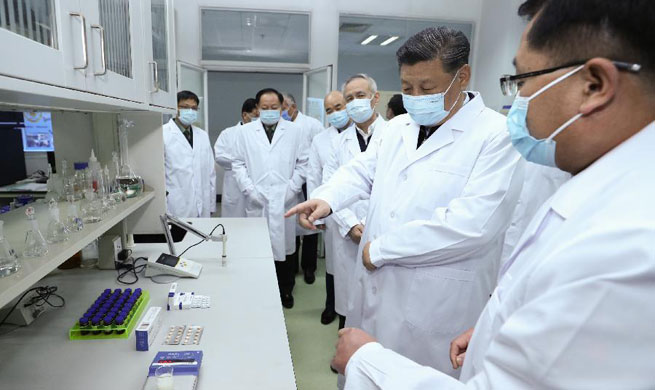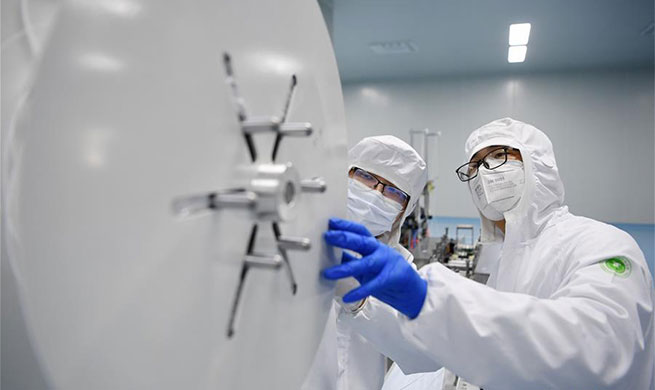CHICAGO, March 4 (Xinhua) -- Researchers at Northwestern University (NU) have developed a promising molecular tool that targets and inhibits one of cell immortality's underlying gears: the enzyme telomerase.
Intrigued by the biological activity of chrolactomycin, which is produced by bacteria and has been shown to inhibit telomerase, the researchers used chrolactomycin as a starting point in the design of their small molecules. They produced more than 200 compounds over the years.
After developing these new compounds, NU researchers joined hands with researchers outside to investigate the extra-telomeric role of telomerase inhibition.
Their studies focused on how the new compounds interact with telomerase on a molecular level and how telomerase inhibition sensitizes cells to chemotherapies and irradiation.
The studies found that the compound they call NU-1 was the most effective of those tested. Its synthesis is very efficient, taking fewer than five steps.
"NU-1 inhibits telomerase unlike anything that came before it," said Karl A. Scheidt, a professor of chemistry in the Weinberg College of Arts and Sciences and a professor of pharmacology at NU Feinberg School of Medicine. "It does this by forming a covalent bond. Another advantage of NU-1 is that its molecular structure should enable scientists to add cargo, such as a therapeutic."
NU has filed a provisional patent for NU-1 and related analogs.
All human cells have telomeres, short DNA sequences that cap the ends of each strand of DNA. Their job is to protect chromosomes and DNA. When a cell divides, the telomeres get shorter until they can no longer do their job. Natural cell death follows.
In contrast, cancer cells, with their heightened telomerase activity, become immortal by reversing the normal telomere shortening process. The enzyme telomerase copies telomeres over and over again, lengthening the telomeres. The result is unlimited cell division and immortality.
Telomerase has been a target for cancer therapeutics research for decades.
The study, posted on NU's website this week, has been published in the journal ACS Chemical Biology.

















